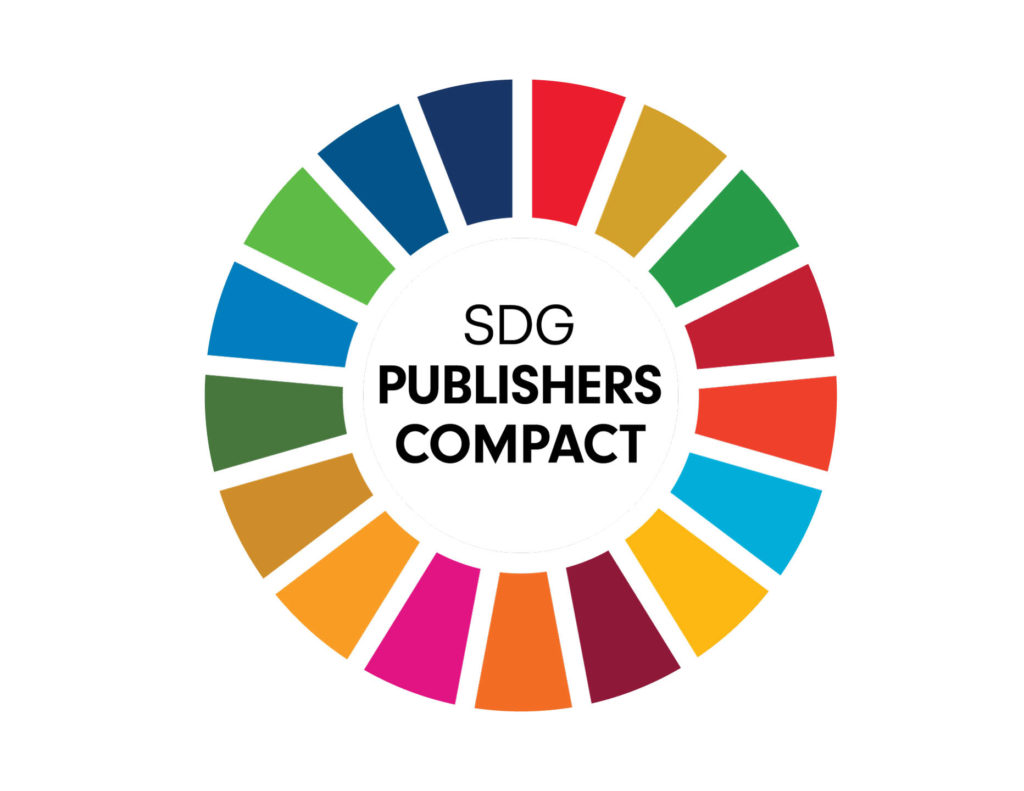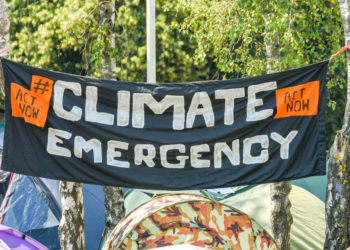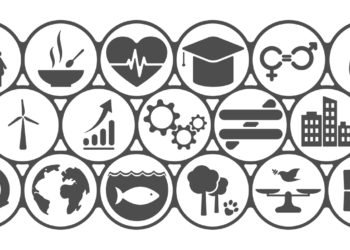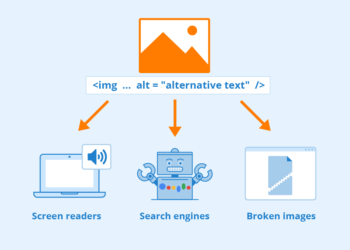Although the United Nations’ Sustainable Development Goals (SDG) Framework ― consisting of 17 SDGs and 232 indicators to measure 169 targets ― was adopted by the UN General Assembly in 2015, academic publishers have long been communicating new knowledge towards these Goals and targets: be it food security, health, water & sanitation, urban development, nature conservation, equity, climate change, or justice. In recent years, many publishers have created strong relationships with concepts like sustainability, sustainable development, and sustainable science, by publishing journals on these issues as well as related broader, crucial societal challenges.

On October 14, 2020, the United Nations and the International Publishers Association (IPA) gave publishers and concerned organizations a new reason for taking individual as well as across-the-sector initiatives by adopting the ‘SDG Publishers Compact’. By joining this Compact, a publisher commits to undertake 10 specific actions, which could be summarized as follows:
- Express publicly the commitment to the SDGs
- Promote and acquire content on these goals
- Report progress annually on SDG-related activities
- Nominate a person to promote the SDGs
- Raise awareness and promote SDGs among staff members
- Raise awareness and promote SDGs among suppliers
- Become an advocate of SDGs to customers & stakeholders
- Collaborate with other Compact signatories and organizations
- Dedicate budget and other resources to accelerate SDG progress
- Take action on at least one SDG.
The Compact itself is contributing to the SDG 17 which aims at strengthening ways of implementing and revitalizing the global partnership for sustainable development. As of July 23, 2022, 226 publishers and related organizations have joined the Compact from all over the world: from Europe 116, Americas 47, Asia and Pacific 41, Africa 16, and Middle-East 6. Among countries, the UK tops the list with 46 publishers/organizations, followed by the USA (21), Germany (15), India (13), and Turkey (13).
There is no progress report available on the United Nations or IPA websites on how the Compact signatories are doing in terms of implementing the 10 action points. A visit to many signatories’ websites revealed that only a few highlighted sustainability as an organizational priority by mentioning sustainability or the SDGs or the Compact on the homepages. On rare occasions, publishers have established separate websites, for example, as a ‘sustainability hub’ bringing together contents, commitments, and collaborations in one place.
In terms of expressing their commitment towards sustainability and to the SDG Publishers Compact, many publishersmade public announcements upon joining the Compact. Some described their commitment in the corporate social responsibility sections on their organizational websites, either elaborately or briefly. Some made the SDGs a part of their mission and strategies. In some cases, organizations emphasized or reiterated their commitment to one or more SDGs or to the Compact through organizational blogs. A few publishers have designated webpages to elaborate on their commitments, sustainability priorities, SDG collections, and a wide range of activities towards the SDGs. Some publishers have even allocated separate pages for each SDG to showcase sustainability-related publications and other activities. Of course, many Compact signatories are yet to show any sign of commitment in any form on their websites.
In terms of reporting the progress towards achieving sustainability, the SDGs, or the Compact action points, some publishers identify blogs as a vehicle to share their progress, while others summarize and share progress via multiple avenues, including visual reporting. Some collate the resources (e.g., IOPP, Brill) they have published in relation to each SDG. As organizational annual reports of 2021-2022 are coming out, we may expect to see more organized, detailed reporting on progress by the publishers. But currently these are limited. On rare occasions, publishers have brought out exclusive reports on the progress they made in 2021-2022 towards the Compact.
The diverse ways publishers have adopted the Compact may depend on the resources they have, however, the value they see in allocating resources to publicly showing their commitment and actions to the Compact may be more important. As the SDG Publishers Compact completes its second year in October 2022, I see four immediate opportunities before us.
1) Taking stock of where we are now: It would be useful to take stock of where we are in terms of meeting the 10-point actions we are committed to as signatories to the Compact. What are the areas where we have made progress ― either significant, modest, or little? What are the areas where no progress could be claimed? And why? While certain actions are relatively easier to take, such as making public announcements upon joining the Compact or making subtle modifications to organizational websites, most of the Compact actions, as noted below, demand well-thought-out plans supported by human and financial resources leading to incremental, collective changes.
2) Guiding towards effective Compact actions: Although each Compact action briefly elaborates on what is expected from the signatories, it could be a bit overwhelming for organizations not familiar with the sustainable development concepts or the SDG Framework. Some Compact actions demand organizational policy change, for example, adopting sustainability policy (Action 1), acquiring SDG-related contents (Action 2), and allocating resources (Actions 4 & 9). Some actions are external, such as those which are for or with the suppliers (Action 6), the customers & the stakeholders (Action 7), and other Compact signatories (Action 8). Some tasks overlap more than one action ― annual reporting falls under Actions 3 and 10.
Organizations may follow their own paths to take Compact actions, but a guideline could help the signatories to work towards these actions effectively and efficiently. IPA or any other organization(s) could lead guideline development. This may include what immediate, mid-term and long-term steps should be taken under each Compact action, chronological sequences of these actions and tasks under them, and how each action may reinforce or complement other actions. This may also harmonize actions among the signatory organizations with same level of progress and facilitate their collaboration. This may further make annual organizational as well as overall Compact reporting much easier.
3) Measuring the changes: As individual organizations plan to implement the Compact actions, they also need to envisage what the change will look like over the next eight years or so ― within the organization’s policy and operations, and among the staff, members, suppliers, customers, and other stakeholders ― at local to global levels. These may become a very useful part of the annual reporting as mentioned above.
4) Complementing existing efforts: We need to link the Compact actions with what we have already been doing for sustainable development. Our efforts, for instance, towards DEIA, as a part of C4DISC, Research4Life, or the open access movement, are essentially contributing to SDG 5 (achieve gender equality), SDG 10 (reduce inequality within and among countries), and 17 (partnerships for the Goals), being achieved through restructuring editorial boards, diversifying reviewer pools, or encouraging more authors from the Global South by offering waivers/discounts on article processing charges (APCs), for example. Similarly, if we are shifting predominately to renewable energy to run our operations or if we are among the early pledgers to the Publishing Declares Climate Action or have initiated other climate actions, we are contributing to SDG 13 (urgent actions to fight climate change). Our attempts to reduce resource use and control pollution along the publishing chain contributes to SDG 12 (responsible consumption and production). All these should be tied to reporting on the progress of the Compact.
Over the next few months, we need to consolidate what we have achieved so far in terms of implementing the SDG Publishers Compact. We need to move away from celebrating how many joined the Compact and focus more on how to speed up our collective action towards sustainability. And we need to start measuring the impacts we are making as scholarly publishers.
Discussion
7 Thoughts on "SDG Publishers Compact: Where Do We Stand Now?"
Thanks for this great summary – I couldn’t agree more that we need to speed up our collective action as an industry towards sustainability. As academic publishers, we are in a unique position to be able to manage our own impacts as well as providing information to help others do the same.
The Higher Education Sustainability Initiative (HESI) has convened a multi-stakeholder group of publishers, researchers and librarians, the SDG Publishers Compact Fellows, to develop resources to help signatories to the SDG Publishers Compact enact the commitments that they have signed up to. The resources so far developed (more are coming), along with information about the Fellows group and its aims, are available on the website for the initiative: https://www.sdgcompactfellows.org/. It is our hope that these will help with your point 2 above – guidance for effective compact actions.
Nicola- Thanks for the link to the Fellows group. Good stuff. I’d also like to give a shout-out to the Climate Change Knowledge Cooperative: https://www.growkudos.com/showcase/collections/climate-change. Many of us support this effort, which summarizes peer reviewed articles for the general public.
Thanks Nicola, for introducing the SDG Publishers Compact Fellows to us. It is indeed an interesting, timely initiative. I agree with you, it definitely can support speeding up our collective effort. All the best!
Thanks Haseeb Bhai for the post. Best wishes! It’s a nice update on SDG related to it’s achievement
Thank you for a thoughtful exploration of the SDG Publishers Compact and reccomendations. At the International Publishers Association, we are proud of the progress made to date to elevate the SDGs to the top of the agenda across the wider publishing industry. Having surpassed 200 signatories, we are starting to see action groups form and cross industry collaborations shape up to accelerate progress and are pleased to have seen a strong uptake and interested from STM publishers. Groups such as the HESI SDG Publishers Compact Fellows and the recently launched STM SDG Academic Forum are great examples of measurable industry action. Last year, the IPA launched an interactive dashboard to collect and record projects and initiatives that relate to each of the 17 SDGs and invite all signatories to regularly update and share their contributions centrally. We are also hard at work with the United Nations publications team to initiate our first stock take of all signatories ahead of Frankfurt Book Fair and are looking forward to sharing our progress. https://sdg.internationalpublishers.org/
Thank you so much for sharing some fantastic and timely initiatives, such as SDG Compact Fellows and SDG Academic Forum, and of course IPA’s dashboard on 17 SDGs. Thank you also for sharing the plan to take stock of how the Compact signatories have been doing since they joined this excitng initiative. We look forward to learning more about it in the coming months.
Thank you Haseeb for publishing this post.
We agree, publishers are in position to take more action towards the compact. We’re happy to share that MDPI launched an SDG Hub, after your post went live.
At mdpi.com/sdg we provide a selection of open access publications for each SDG. At the moment we have 3 available (Goals 5, 11, and 13), with more to follow. Each Goal has a page with a paper, related to the goal, whose APC has been fully waived.
Beyond promoting SDGs, MDPI supports sustainability through the World Sustainability Forum and Awards. In the MDPI SDG Hub, you can access links to the World Sustainability Award and Emerging Sustainability Leader Award, combining to provide 120’000 CHF to researchers who are contributing to regional and global efforts towards a sustainable world.
To further our impact in this area we welcome publishers to begin and continue contributing to SDG initiatives and share them for others to support.
If you have any questions about MDPI SDG activities, please feel free to reach out directly.
Dr. Liliane Auwerter,
Scientific Officer, MDPI
liliane.auwerter@mdpi.com



